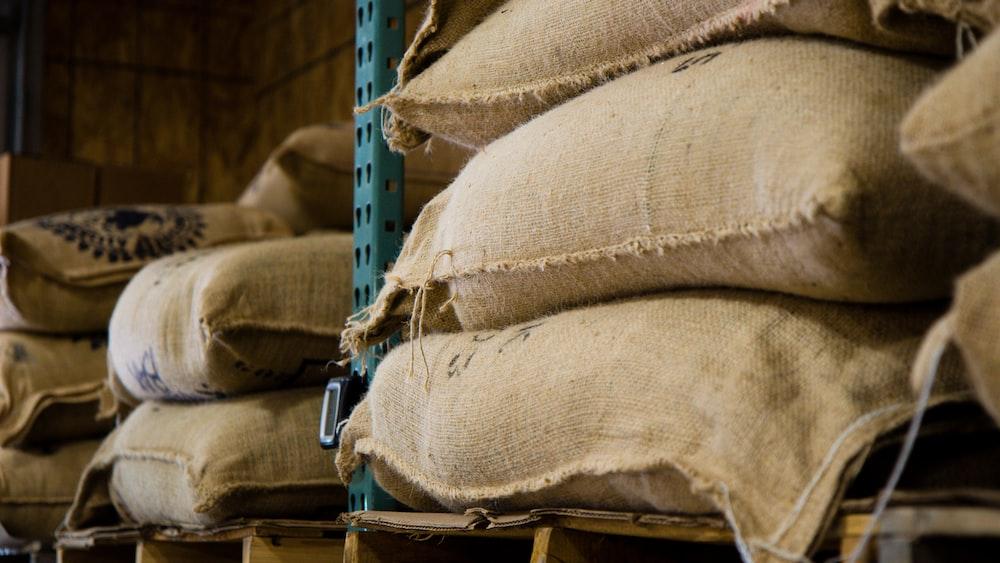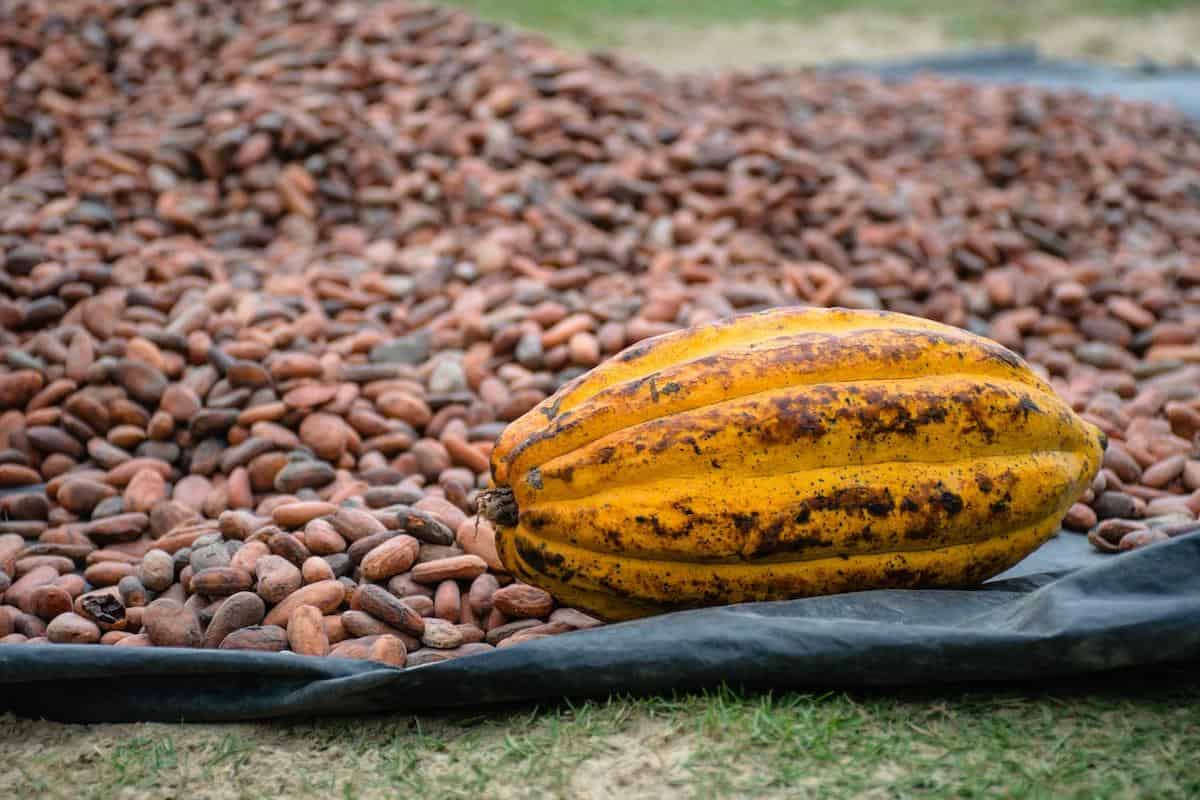In a world where coffee has become an indispensable part of our daily routines, the search for alternative options continues to grow. Among these emerging alternatives is rice coffee, a unique and flavorful beverage that offers a refreshing twist on traditional coffee.
With its energizing properties and distinctive taste, rice coffee has gained popularity among those seeking a new caffeinated experience. In this introductory section, we will delve into the rise of rice coffee, highlighting its growing trend as both a viable and delicious alternative.
Coffee lovers are increasingly looking beyond the conventional cup of joe, and this shift towards alternative coffee options has opened the door for innovative beverages like rice coffee. Derived from roasted rice grains, this drink provides a mellow yet invigorating flavor profile that captivates the palate.
Additionally, rice coffee offers a welcomed break from the boldness of traditional coffees while still delivering a satisfying boost of energy. With its unique characteristics, it’s no wonder that more and more individuals are turning to this intriguing beverage as their go-to morning pick-me-up or afternoon treat.
While rice coffee may seem like a recent culinary invention, its origins stretch back centuries in Asian culture. Throughout history, various Asian countries have been utilizing rice as an essential ingredient in different recipes and beverages.
The transformation of rice into coffee-like drinks began as a practical solution during times when real coffee beans were scarce or expensive. As time passed, these rice-based concoctions evolved into modern-day beverages that have been embraced worldwide for their cultural significance as well as their delightful taste.
As we explore the rise of rice coffee in subsequent sections, we will dive deeper into its historical roots and cultural importance across various regions. We will also uncover how it is made – from field to cup – shedding light on the intricate process that brings out its exceptional flavors and qualities.
Furthermore, we will examine both the nutritional benefits associated with consuming rice coffee and the diverse range of flavors and blends available in the market. So, join us on this journey as we navigate the world of rice coffee and embrace its richness as a tasty and energizing alternative.
The Origins of Rice Coffee
Rice coffee, also known as rice brew or rice java, has a rich history that can be traced back centuries in Asian culture. It originated as a traditional beverage in countries like Vietnam, Thailand, and the Philippines, where rice was an essential staple crop. In these regions, where coffee beans were scarce and expensive, people developed their own unique methods for brewing a coffee-like drink using rice.
The practice of making rice coffee began as a way to extend the limited supply of coffee beans or as a substitute for those who couldn’t afford them. Rice grains were roasted until they turned golden brown, creating a rich and aromatic flavor similar to that of coffee. The roasted grains would then be ground into a powder and brewed with hot water to create a satisfying beverage.
Beyond its practical origins, rice coffee also held cultural significance in many Asian communities. It was often prepared for special occasions like weddings or served during important ceremonies and gatherings. In some cultures, rice coffee was associated with good luck and prosperity, symbolizing abundance and unity within families.
Over time, the popularity of rice coffee spread beyond Asia as people recognized its unique taste and the benefits it offered as an alternative to traditional coffee. As globalization increased cultural exchange, rice coffee gained traction in Western markets as well. Today, it is not uncommon to find rice coffee being enjoyed by people around the world seeking new flavors and exciting alternatives to regular coffee.
| Time Period | Significant Events |
|---|---|
| Ancient Times | Rice brewing techniques develop in Asia |
| Medieval Period | Cultivation of rice expands across Asia |
| 18th Century | Traditional rice coffee recipe becomes popular in Southeast Asia |
| 20th Century | Rice coffee gains recognition in Western markets |
The Making of Rice Coffee
Harvesting and Processing Rice for Coffee Production
The process of making rice coffee begins with the careful selection and harvesting of rice grains. Farmers ensure that only high-quality rice is chosen, as this greatly impacts the flavor and aroma of the final product. Once harvested, the rice grains go through a thorough cleaning process to remove any impurities or husks.
After cleaning, the rice is dried using specialized equipment or traditional methods such as sun drying. Proper drying is crucial in ensuring that the moisture content of the rice is reduced to an optimal level for roasting. Once dried, the rice grains are ready for the next step in the process.
Roasting and Grinding: Unlocking Flavor and Aroma
Roasting plays a significant role in developing the unique flavors and aromas of rice coffee. The dried rice grains are roasted at precise temperatures to bring out their full potential. Roasting time may vary depending on desired flavor profiles, with some opting for a lighter roast for a milder taste while others prefer a darker roast for bolder flavors.
After roasting, the rice grains are cooled down before being ground into a coarse powder or fine coffee grounds. Grinding can be done using traditional methods such as stone mills or modern electric grinders specifically designed for coffee production. Different grind sizes also offer various brewing options, allowing individuals to tailor their cup of rice coffee according to their preferences.
Sustainable Practices and Quality Control
In recent years, there has been a growing emphasis on sustainability in rice coffee production. Some farmers have adopted organic farming methods to reduce environmental impact and promote healthier ecosystems. Additionally, sustainable sourcing ensures fair trade practices that benefit both producers and consumers.
Quality control measures are also implemented throughout the entire production process to maintain consistency and excellence in every batch of rice coffee produced. Skilled tasters perform sensory evaluations to ensure that each cup meets the desired flavor profiles and meets stringent quality standards. By prioritizing sustainability and quality, rice coffee producers aim to deliver a truly exceptional beverage to coffee enthusiasts around the world.
The Health Benefits of Rice Coffee
The Nutritional Composition of Rice Coffee
Rice coffee is not only a delicious and energizing alternative to traditional coffee, but it also offers numerous health benefits. When it comes to its nutritional composition, rice coffee is a powerhouse packed with essential minerals and antioxidants. While the exact nutritional content may vary depending on the brand and brewing method, rice coffee generally contains a range of important nutrients.
One key component of rice coffee is dietary fiber. Fiber plays a crucial role in maintaining digestive health and promoting regular bowel movements. It can help prevent constipation, reduce the risk of colon cancer, and regulate blood sugar levels. Rice coffee is particularly beneficial for individuals who may be sensitive to the acidity often found in traditional coffee as it tends to be gentler on the stomach.
Abundance in Essential Minerals and Antioxidants
In addition to dietary fiber, rice coffee is rich in essential minerals such as potassium, magnesium, and iron. Potassium helps maintain proper heart function and blood pressure levels while magnesium plays a vital role in various bodily functions including energy production and nerve function. Iron is important for red blood cell formation and oxygen transport throughout the body.
Rice coffee also contains antioxidants that help protect against cell damage caused by harmful free radicals. These antioxidants, such as phenolic compounds and flavonoids found naturally in rice, can boost the immune system, reduce inflammation, and protect against chronic diseases such as heart disease and cancer.
Potential Health Benefits
Due to its nutritional composition, consuming rice coffee can offer several potential health benefits. Improved digestion is one notable benefit thanks to its fiber content. The dietary fiber in rice coffee promotes healthy digestion by aiding in bowel regularity.
Furthermore, some studies suggest that consuming antioxidants from sources like rice coffee may enhance brain function and provide protective effects against cognitive decline associated with aging or neurodegenerative diseases such as Alzheimer’s. While more research is needed to determine the exact mechanisms and benefits, rice coffee shows promising potential for supporting brain health.
Moreover, rice coffee can be a great choice for individuals looking to reduce their caffeine intake while still enjoying a warm and flavorful beverage. With its natural energizing properties and nutrient-rich profile, rice coffee offers a healthier alternative for those seeking an energy boost without feeling jittery or experiencing caffeine-related side effects.
Rice Coffee Varieties
Rice coffee, as a unique and delicious alternative to traditional coffee, offers a variety of flavors and blends that cater to different preferences. With its growing popularity, there are now numerous rice coffee varieties available in the market for consumers to explore and enjoy.
- Single-Origin Rice Coffee: Just like traditional coffee, rice coffee can also come from specific regions known for their high-quality rice production. These single-origin rice coffees highlight the distinct flavor profiles of the specific rice used. For example, you may find rice coffees sourced from Thailand with a nutty and slightly sweet taste, while those from the Philippines may have a more earthy and robust flavor.
- Blended Rice Coffee: Blending different types of rice can create a well-balanced and complex cup of coffee. Rice coffee blends often combine different varieties or even mix in other ingredients like chicory or herbs to enhance the flavors. These blends can offer a unique taste experience that is rich and satisfying.
- Flavored Rice Coffee: Just like flavored traditional coffees, there are also flavored options available for rice coffee lovers. From classic flavors like vanilla or chocolate to more exotic choices like coconut or pandan, flavored rice coffees add an extra layer of indulgence and excitement to your cup.
Pairing food with rice coffee can elevate your overall sensory experience. Here are some recommendations:
- Fruity Varieties: Try pairing fruity-flavored rice coffee with fresh fruits or fruit-based pastries for a refreshing combination.
- Nutty Varieties: Nutty-flavored rice coffees complement nut-based desserts such as almond cookies or hazelnut brownies.
- Chocolatey Varieties: Indulge in the rich flavors by enjoying chocolate-flavored rice coffee alongside chocolate desserts or dark chocolate bars.
By exploring the different varieties of rice coffee available in the market, you can find the perfect cup that suits your taste preferences and enhances your overall enjoyment of this energizing alternative. Whether you prefer a single-origin rice coffee for its authentic flavors or enjoy the complexity of a blended rice coffee, there is a variety out there waiting to be discovered and savored.
So, widen your horizons and embrace the vastness of rice coffee options available to experience a truly unique and flavorful beverage.
Brewing the Perfect Cup of Rice Coffee
Rice coffee is a unique and flavorful alternative to traditional coffee options, offering a tasty and energizing experience for coffee enthusiasts. To fully enjoy the richness of rice coffee, it is important to know how to brew the perfect cup at home. With the right techniques and equipment, you can savor a delicious cup of rice coffee that suits your taste preferences. Here are some tips and tricks to help you brew the perfect cup of rice coffee:
- Selecting the Right Rice: The foundation of a great cup of rice coffee starts with choosing the right type of rice. Look for long-grain or short-grain varieties that have a distinct aroma and flavor profile. Jasmine rice is commonly used in rice coffee due to its fragrant qualities.
- Grinding Technique: To extract the full flavors of rice coffee, it is important to grind the rice to an appropriate consistency. Use a high-quality grinder that allows you to achieve a fine grind, similar to what you would use for brewing regular coffee. This will ensure optimal extraction and flavor infusion.
- Brewing Methods: There are several methods you can use to brew rice coffee, depending on your preference and available equipment. One popular method is using a pour-over technique with a specially designed rice coffee filter cone or paper filter. Another option is using a French press or an espresso machine with a specific setting for brewing rice coffee.
- Water-to-Rice Ratio: Finding the right water-to-rice ratio is crucial for achieving the perfect balance in your cup of rice coffee. Start with a 1:10 ratio (1 part rice to 10 parts water) for stronger flavor profiles, adjusting as needed based on personal preference.
- Time and Temperature Control: The ideal brewing time for rice coffee typically ranges from 3-5 minutes, depending on the brewing method and desired strength. The water temperature should be between 195-205°F (90-96°C) to release the flavors and compounds from the rice effectively.
- Flavors and Additions: Rice coffee can be enjoyed black or enhanced with various flavors and additions. Consider adding a splash of milk or cream to create a creamy texture, or experiment with natural sweeteners like honey or maple syrup for added sweetness.
By following these tips and tricks, you can brew a delicious and satisfying cup of rice coffee right in the comfort of your own home. Each step, from selecting the right rice to mastering the brewing technique, contributes to unlocking the unique flavors and energizing properties that make rice coffee an excellent alternative to traditional coffee beverages. Start your day with a perfect cup of rice coffee and embrace its richness.
The Cultural Significance of Rice Coffee
Rice coffee is not just a tasty and energizing alternative to traditional coffee; it also holds significant cultural value in various regions around the world. Beyond being a popular drink, rice coffee plays a vital role in social gatherings and traditional ceremonies, adding depth and richness to the cultural fabric of different communities.
In Asian cultures, particularly in countries such as Vietnam and the Philippines, rice coffee has a long-standing history and is deeply rooted in local traditions. In Vietnam, for example, rice coffee is often enjoyed during family meals or shared among friends as a symbol of hospitality and togetherness. It is also an integral part of Vietnamese weddings and other festive occasions.
Similarly, in the Philippines, rice coffee has been consumed for centuries as part of daily life and special occasions. Filipinos often serve rice coffee during festive celebrations like Christmas or weddings, where it is considered a gesture of warmth and welcome to guests. Additionally, rice coffee holds particular significance during religious events like All Saints’ Day when it is offered to ancestors as an act of remembrance and respect.
The cultural significance of rice coffee extends beyond its consumption. It is intertwined with stories, folklore, and historical events that have shaped communities over time. For instance, there are legends in certain regions that depict how this unique beverage was discovered or invented by wise elders who wanted to find ways to make use of leftover rice. These stories not only provide entertainment but also serve as reminders of the resourcefulness and creativity inherent in local cultures.
| Region | Cultural Significance |
|---|---|
| Vietnam | Rice coffee symbolizes hospitality and togetherness; integral part of weddings |
| Philippines | Rice coffee signifies warmth and welcome; offered to ancestors during religious events |
Overall, rice coffee is not just a beverage but a cultural artifact that connects people and communities through shared experiences. By understanding and appreciating the cultural significance of rice coffee, we can gain a deeper appreciation for this alternative coffee option.
Where to Find Rice Coffee
In recent years, the popularity of rice coffee has been steadily increasing as people embrace alternative options to traditional coffee. If you’re curious about trying this unique and energizing beverage, you might be wondering where to find rice coffee and which brands are worth exploring. Fortunately, there are several reputable companies and coffee shops that offer high-quality rice coffee for you to indulge in.
One well-known brand that produces delicious rice coffee is Rice Coffee Co. Their commitment to sourcing premium quality ingredients and their dedication to sustainable practices have made them a popular choice among rice coffee enthusiasts. They offer a variety of blends that cater to different flavor preferences, such as medium roast, dark roast, and even flavored options like vanilla or caramel.
Whether you prefer a bold and robust cup or a smooth and creamy one, Rice Coffee Co. has something for everyone.
For those who enjoy supporting local businesses, seeking out specialty coffee shops is a great way to find unique rice coffee offerings. Many artisanal cafes have started making their own versions of rice coffee using locally sourced ingredients and small-batch roasting techniques. These establishments often prioritize quality over quantity, resulting in exceptional flavor profiles that can’t be found elsewhere. Exploring your local neighborhood for these hidden gems can be an exciting adventure for any coffee lover.
If convenience is a priority for you, online retailers provide an excellent option for purchasing rice coffee from the comfort of your own home. Websites like The Rice Coffee Emporium offer an extensive selection of rice coffee from various brands worldwide. They provide detailed product descriptions, customer reviews, and ratings to help guide your decision-making process while ensuring a seamless shopping experience.
With the rising popularity of rice coffee, it’s becoming easier than ever to find this tasty alternative in today’s coffee culture. Whether you choose to explore popular brands like Rice Coffee Co., support local specialty cafes, or shop online at dedicated retailers like The Rice Coffee Emporium, each option provides an opportunity to indulge in the richness and energy of rice coffee.
So why not step out of your comfort zone and embark on a flavorful journey with rice coffee? Once you experience the unique taste and benefits it offers, you may find yourself embracing this delightful alternative as part of your daily routine.
Conclusion
In conclusion, rice coffee offers a tasty and energizing alternative to traditional coffee options. Throughout this article, we have explored the rise of rice coffee as a viable and delicious choice for coffee lovers. From its historical origins in Asian culture to the modern-day production methods, we have uncovered the rich cultural significance and process behind creating this unique beverage.
Not only does rice coffee provide a flavorful experience, but it also boasts numerous health benefits. With its abundance in essential minerals and antioxidants, rice coffee can contribute to improved digestion and enhanced brain function. Moreover, the variety of flavors and blends available in the market allows individuals to find their perfect cup of rice coffee that complements their taste preferences and food pairings.
As rice coffee gains momentum in today’s coffee culture, there are plenty of opportunities to indulge in this delightful beverage. Popular brands and coffee shops offer rice coffee, providing accessibility for those interested in trying something new. Additionally, online retailers make it possible to enjoy rice coffee from the comfort of one’s own home.
Overall, embracing the richness of rice coffee opens up a world of flavorful possibilities. With its increasing popularity and availability, now is the perfect time to give this alternative a try.
Whether you are seeking an energizing pick-me-up or looking for a unique twist on your usual cup of joe, rice coffee offers an enticing option that is both satisfying and delightful. So go ahead, venture into the realm of rice coffee and discover the goodness it has to offer.
Frequently Asked Questions
What is a rice coffee?
Rice coffee, also known as rice brew or rice-based coffee substitute, is a beverage made from roasted rice grains. It is often used as a caffeine-free alternative to regular coffee and is popular in some cultures where traditional coffee is not readily available or consumed.
The process of making rice coffee involves roasting the grains until they resemble the flavor and aroma of actual coffee beans.
Is rice coffee good for the health?
In terms of health benefits, rice coffee can be a good option for individuals who are avoiding or limiting their caffeine intake. It provides a rich flavor without the stimulating effects of caffeine found in regular coffee.
Additionally, it is naturally free of many compounds that may have negative health effects, such as acidity and certain oils present in traditional coffee. However, it’s worth noting that the nutritional content of rice coffee is minimal compared to other beverages like herbal teas.
Can you make coffee out of rice?
While you cannot make traditional brewed coffee using rice, you can indeed make a coffee-like drink using roasted rice grains. By roasting the rice until it turns brown and resembles the appearance of roasted coffee beans, you can create a flavorful and aromatic beverage that closely mimics the taste of actual coffee.
However, it’s important to note that this rice-based drink does not contain any caffeine unless it has been artificially added.
Is rice coffee good for stomach?
For those with sensitive stomachs or digestive issues, consuming rice coffee might be beneficial due to its lack of acidity and certain oils that are present in regular coffee. These natural components often contribute to gastric distress or acid reflux symptoms experienced by some individuals when drinking traditional coffee.
Therefore, if you’re someone who experiences stomach discomfort after consuming regular coffee, switching to rice-based alternatives might be worth considering.
Is rice coffee good for sleep?
Rice coffee does not have any specific properties that would directly affect sleep patterns or quality. While some individuals might find that reducing their overall caffeine intake positively impacts their sleep hygiene due to avoiding stimulating substances, it’s important to remember that most commercially available rice coffee substitutes do not contain caffeine.
Therefore, when it comes to sleep, rice coffee should not have any adverse effects and can be a suitable alternative for those who want to limit their caffeine consumption in the evening or close to bedtime.







